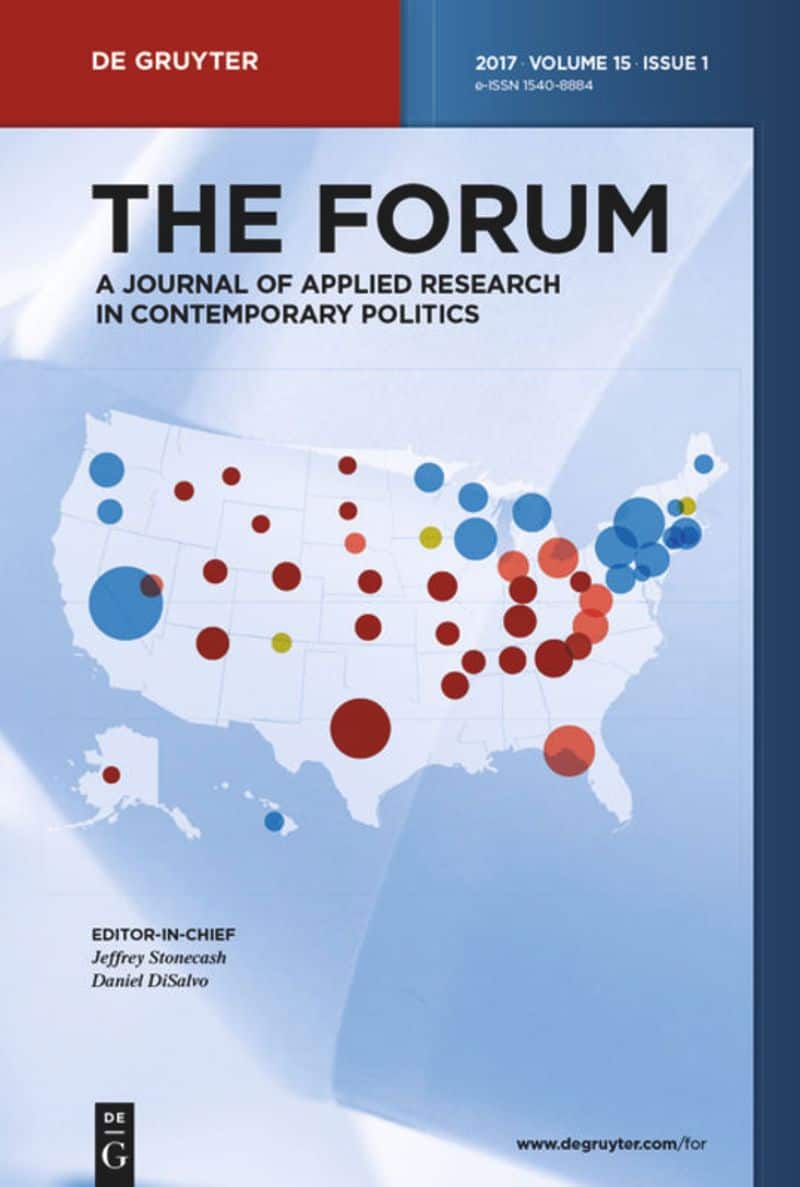“Most Polarized” US Senate is Partisan, Obstructionist and Less Deliberative
Researchers use empirical methods to show the impact of polarization on the current US Senate.
Press release, 16 February 2022
The 117th US Senate is the most polarized since the Civil War and the start of the direct-election era in 1914, according to a new study that analyzes the impact of this polarization on election outcomes and policymaking in the US.
The study, published in the De Gruyter journal The Forum, used data-driven measures of legislative activity and electoral outcomes to demonstrate its findings.
Firstly, researchers Carlos Algara of Claremont Graduate University and Savannah Johnston now of Providence College, Rhode Island, show that greater polarization is correlated with more partisan Senate elections outcomes. These are characterized by narrower majorities and more unified congressional parties, largely mirroring those for the US House.
“Over 90% of Senators represent states that are carried by the other party and the correlation between the presidential and Senate vote is rapidly approaching one,” said Algara.
Secondly, the study shows that polarization results in a more obstructionist and less deliberative Senate. “Greater polarization coincides with higher levels of observable obstruction, conflict on Capitol Hill, and less consideration of floor amendments or committee meetings,” Algara explained.
The US Senate is traditionally upheld as the world’s greatest deliberative body; an institution where Senators debate, offer amendments and hold committee hearings on proposed legislation.
But, Algara said: “Our study shows that this traditional articulation of the Senate falls short in today’s contemporary polarized Senate, where there is little debate, more obstruction, fewer amendments, more partisanship and a general lack of deliberation.”
The research was informed by Algara and Johnston’s experiences in the US Senate as American Political Science Association (APSA) Congressional Fellows during the 116th Congress.
“During our time as Senate staffers in separate offices, we both saw first-hand the lack of legislative deliberation in the ‘world’s greatest deliberative’ body and how partisan a place the Senate is,” said Algara.
This motivated the researchers to devise empirical methods ─ grounded in political science ─ to demonstrate their observations. While Algara points out that the pair is not the first to remark that today’s Senate is more partisan and less deliberative, their deployment of an analytical, data-driven approach makes their findings original and significant.
“We believe our contribution lies in drawing upon various data sources and dimensions to show how Senate polarization produces more partisan Senators and, with it, an institution incapable of deliberating on legislation.”
The freely accessible paper can be found here
[Title image by powerofforever/iStock/Getty Images Plus]
